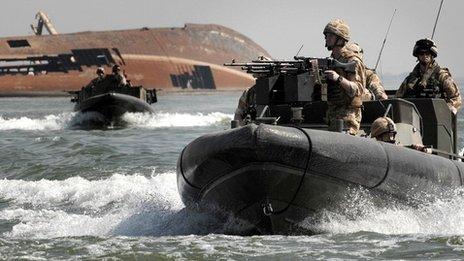'Learn lessons from Iraq Inquiry,' says ex-attorney general
- Published
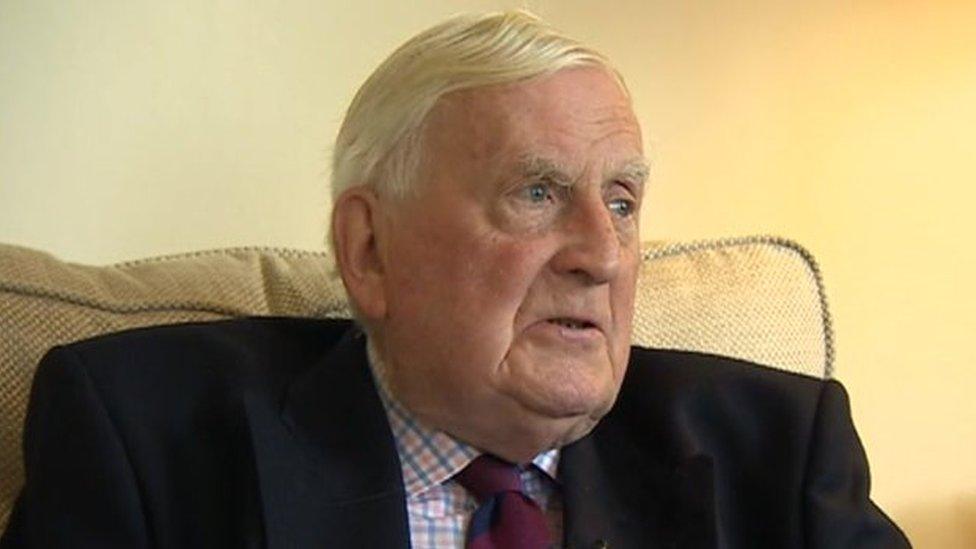
Lessons need to be learned from the Iraq Inquiry, Tony Blair's former attorney general has said.
Sir John Chilcot's panel will finally publish its long-awaited report into the causes, conduct and aftermath of the 2003 invasion of Iraq on Wednesday.
Lord Morris of Aberavon called the seven-year wait "intolerable".
Mr Blair's chief legal adviser from 1997 to 1999 said a tighter remit might have shortened the process and other inquiries could face similar problems.
"The terms of reference were much too wide. If they had been more tightly drawn, I think we might have hoped for a much earlier report from them," he said.
"We don't seem to be learning any lessons. The historic sex abuse inquiry under New Zealand judge Lowell Goddard, they don't seem to have learnt there because I think she will be here for many, many years conducting that inquiry."
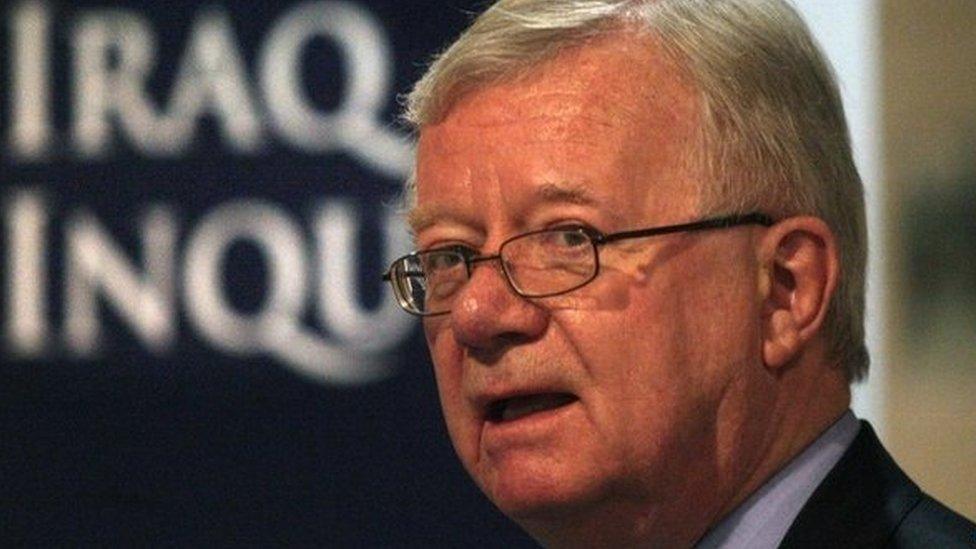
There have been criticisms of the length of time it has taken for Sir John Chilcot to publish his report
The Iraq Inquiry was launched in 2009 into the UK's participation in the US-led invasion of Iraq - which led to the toppling of Saddam Hussein.
During six years of combat operations, 179 British service personnel were killed.
Robert McFerran's son Peter, from Connah's Quay, Flintshire, died in 2007 in a missile attack on Basra airbase.
"He was a soldier - these things happen in war. But wars are supposed to be legal and they are supposed to be in defence of this country. And this didn't seem to fit that category at all," he said.
Military action in Iraq was controversial from the start but, as the post-war hunt for weapons of mass destruction drew a blank and Iraq slipped into factional violence, questions about the legality of the war increased.
In June 2009, demands for an inquiry were finally granted.
Theresa Evans from Llandudno, Conwy county, lost her son Llywelyn in the opening hours of the invasion when the helicopter he was travelling in crashed.
"These people are going to turn over stones and rocks to find out the truth. That's all I ever, ever want to know is the truth," she said.
More than 150,000 documents have been submitted to the inquiry and evidence has been taken from in excess of 150 witnesses. The final report is expected to run to more than 2,500,000 words.
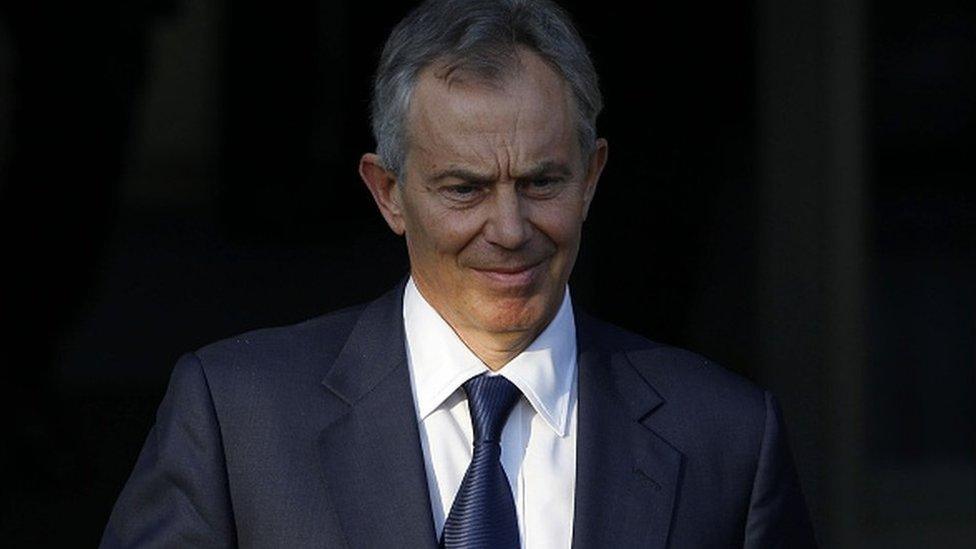
Former Prime Minister Tony Blair was among those called to give evidence
Historian James Ellison of Queen Mary University of London said given the scale and scope of the task, the inquiry was always going to take time.
"It's taken so long because it has covered so much. It's dealing with three things; the run-up to the conflict, the conflict itself and the reconstruction afterwards," he said.
"Its remit has been very large and, in its defence, it has been dealing with one of the biggest issues in modern British, in fact, modern world history."
Mr McFerran and Ms Evans will join other families in London for the publication of the Iraq Inquiry's findings when they will get an early look at the report.
"Hopefully, at the end of the tunnel, there will be a little bit of light," said Ms Evans.
Mr McFerran added: "Hopefully I might get a bit of rest in my own mind. Because we can't grieve properly - we need to end the grieving process and while all this is going on it's impossible."
Eye on Wales, BBC Radio Wales, 12:30 BST, 3 July
- Published9 May 2016
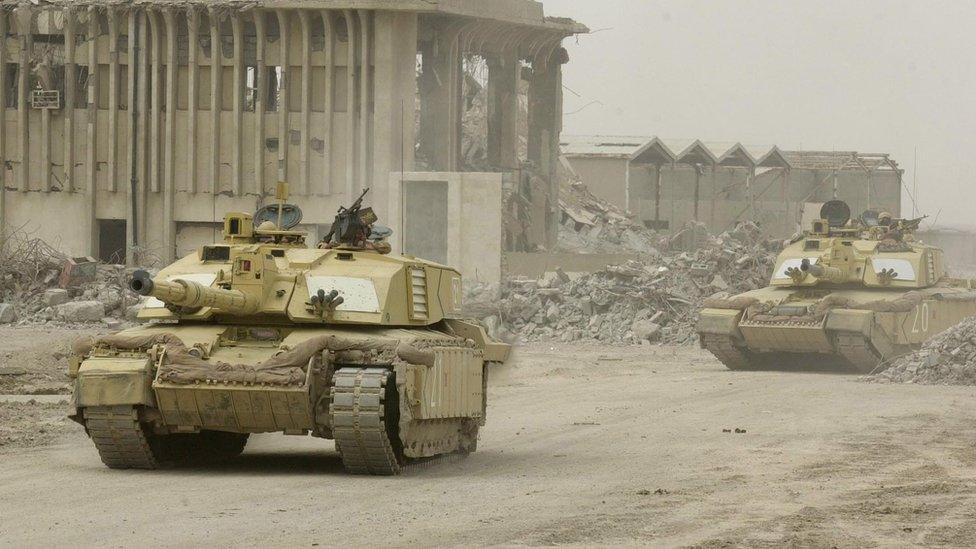
- Published22 October 2015
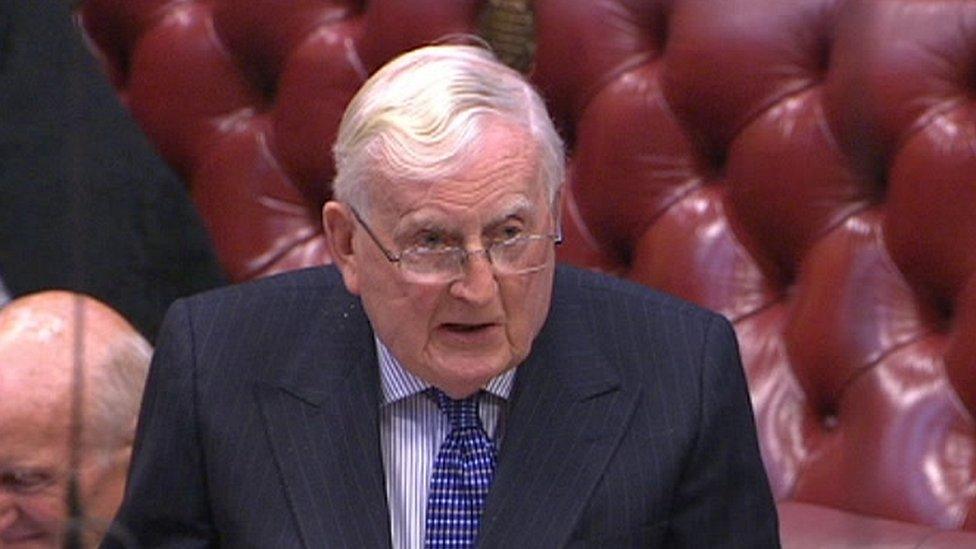
- Published21 August 2015
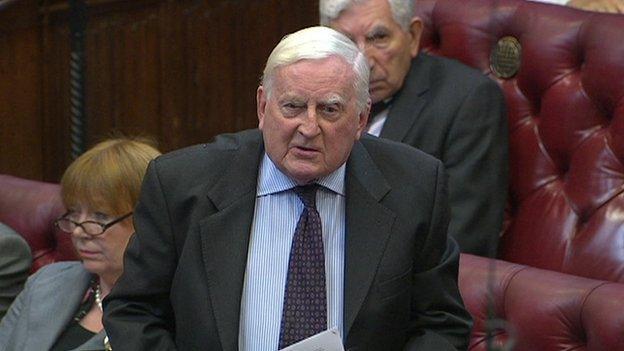
- Published5 July 2016
